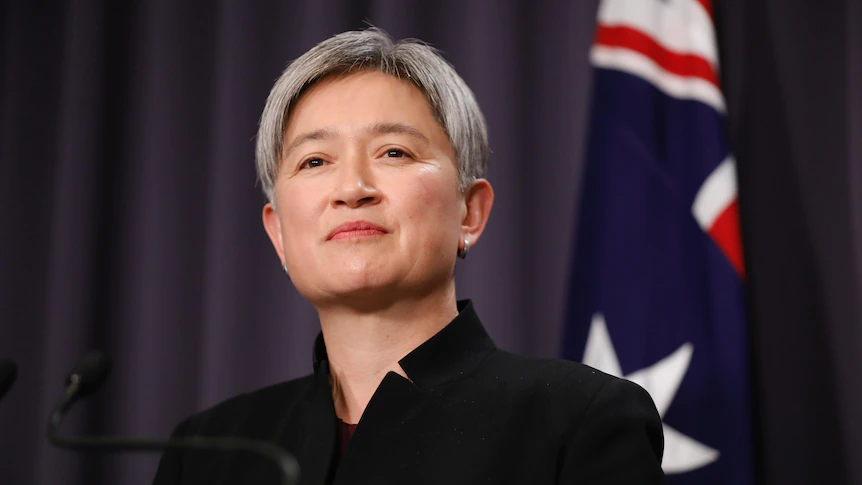Australia will rejoin the world’s major global climate finance fund, reversing a Morrison government decision to withdraw from the United Nations initiative.
The Abbott and Turnbull governments provided $200 million (US$126 million) to the Green Climate Fund (GCF) between 2015 and 2018 before then-prime minister Scott Morrison announced he would no longer “tip money into that big climate fund”.
The Morrison government followed up in the 2019 budget by ceasing payments to the fund, which finances projects in the developing world that cut emissions and promote climate resilience.
Foreign Minister Penny Wong announced on Thursday that Australia would rejoin the fund and announce a “modest contribution” before the end of the year.
“We have taken on board feedback from our partners in the Pacific on the best ways to direct our climate finance efforts and ensure all elements deliver for Pacific priorities,” a spokeswoman for Wong said.
“We recognise that the GCF is the most prominent global climate finance fund, and we will work with partners to improve the GCF’s effectiveness.
“At the same time, Australia is supporting the Pacific’s transition to renewable energy and is helping countries build climate resilience.”
In response to the announcement that Australia will rejoin the Green Climate Fund, Greenpeace Australia Pacific’s Pacific Advisor and Engagement Manager, Shiva Gounden said: “We cautiously welcome the announcement that the Australian government is listening to the vocal calls of Pacific nations and rejoining the Green Climate Fund — the primary fund globally for climate finance and a vital tool in supporting climate-impacted nations like the Pacific.
“It is the right decision. Pacific communities are bearing the brunt of the climate crisis as they experience more severe storms, sea level rise and loss of agricultural land. This has a profound impact on the culture, livelihoods and unique way of life of Pasifika people who hold a deep connection to the land and oceans.
“While the commitment to a ‘modest contribution’ is positive, the key demand we are consistently hearing from Pacific leaders is for no new fossil fuels. Contributing to the fund without stopping all new coal and gas projects is like showing up at a fire with a extinguisher in one hand and a flamethrower in the other.
“We urge the Australian government to go a step further and heed Pacific demands to end all new fossil fuels.”
A report by the Lowy Institute released last month described the fund as “a linchpin for global climate solidarity between rich and developing countries”, but noted it has “struggled to define its role in an increasingly crowded climate finance landscape” and was “seen as slow and difficult to work with, especially for the most vulnerable countries”.
Although the fund was not effectively targeting its funds towards countries with the greatest needs, the think tank said Australia should rejoin the initiative to boost its climate credentials as it seeks to host the COP31 climate summit in 2026.
Then-president Donald Trump announced he was withdrawing the United States from the fund soon after coming to office in 2017, saying it was “costing the United States a vast fortune”.
SOURCE: SMH/PACNEWS














